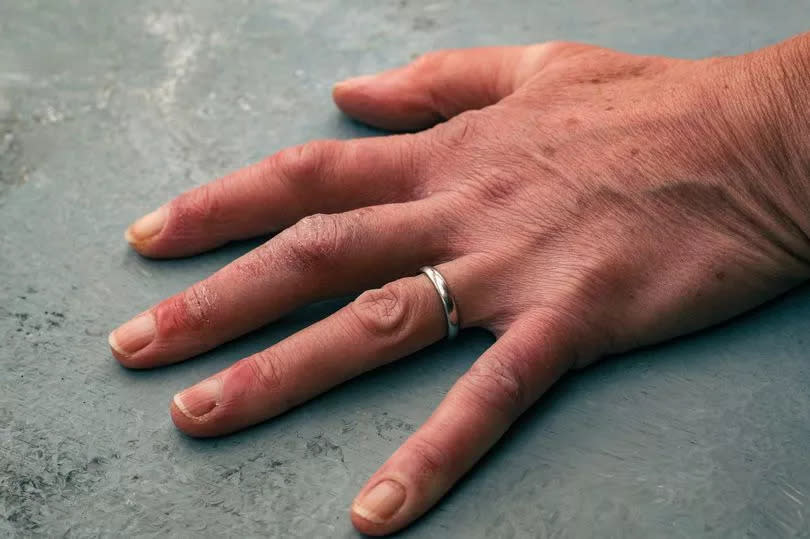Married couples warned of ways to avoid 'ring rash' in hot weather

A skincare expert has shared how people who wear wedding rings can save their skin from irritation. It comes amid reports of Brits experiencing ‘ring rash’ as the weather heats up.
A recent study conducted by Pandora UK shows 34% of wedding ring owners suffer from 'ring rash'. Data also revealed 21% admitted they’ve never cleaned their jewellery.
Emma Fox, from Pandora UK, commented: "Knowing the metals used [in your ring] is vital to avoid damage and skin irritation in the long run. Proper care of these metals is essential for maintaining the pristine appearance of your jewellery for as long as possible."
To help combat any skin issues you may have as the UK endures heatwaves, Pandora UK has spoken to Ridah Syed from Skinfluencer. The expert has provided insight on how you can determine which metals are most compatible with your skin type and how to avoid 'ring rash'.
Knowing which metals are best to wear everyday
Pandora UK’s research shows 34% of people who own engagement or wedding rings have experienced 'ring rash.' This rash can occur when a ring triggers irritation, when moisture (from sweating for example) gets trapped under the ring, or there's friction between the ring and the skin.
However, 27% of respondents confessed to rarely cleaning their ring. Up to 21% admitted to never having cleaned it even once.
Ridah said: “Platinum is a highly recommended option as it is exceptionally pure and does not contain common allergenic metals. This is why it has been widely favoured for wedding and engagement rings.
“White, rose, and even yellow gold are blended with other metals to enhance their strength. The carat value of gold indicates the amount of pure gold in the piece, with higher carat yellow gold pieces having fewer additional alloyed metals. This makes them a favoured choice for those with sensitive skin.”

Ideal metals for sensitive skin, or metal allergies
According to survey results, 53% said sensitive skin limits their choice of jewellery. However, Ridah emphasises that simply understanding the effects of metals on your skin is essential to overcome this.
“Opting for pieces made from hypoallergenic materials like titanium or stainless steel can be a fantastic solution," Ridah said. "These materials are known for being gentle on the skin and can offer an alternative for those with metal allergies.
“Additionally, exploring jewellery labelled as nickel-free or made with higher gold carat values can significantly minimise the risk of irritation. The key is to find materials that suit your skin and style, allowing you to continue enjoying the beauty of jewellery without any concerns.”
Knowing when to remove certain jewellery
This may not seem obvious, but it can be important to remove certain types of jewellery in different situations, such as swimming or having a bath. This can help keep your jewellery in good condition and avoid any irritation.
Ridah explained: “Chlorine, which is commonly used in pools to kill bacteria, can damage precious metals and stones, leaving them discoloured and tarnished. Shampoos, conditioners, and body washes have the potential to damage your jewellery and cause skin irritation, as they may become trapped behind your ring's setting and react with the sulphates present.
“This reaction can lead to tarnishing of silver pieces and leave discoloured marks on your skin. Therefore, it is best to remove your jewellery before swimming or bathing.”
What to look out for if a certain metal may not suit your skin type
It’s possible that you may be allergic to some types of metal, which is what can result in a rash on the skin. Ridah said: “Experiencing contact dermatitis is a typical indicator of a metal allergy, often seen as a rash in areas where your skin has encountered the allergen.
“If you suspect an allergy, be attentive to signs such as redness, itching, or discomfort, typically manifesting within 12 to 48 hours. In case you observe these symptoms, it's advisable to promptly remove the jewellery and allow your skin to recover.
“If discomfort persists or worsens, seeking advice from a healthcare professional is recommended for appropriate guidance and potential alternatives for hypoallergenic jewellery.”

 Yahoo News
Yahoo News 
